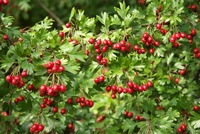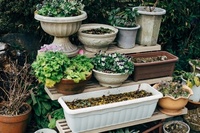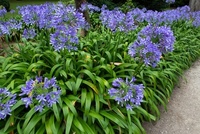As winter’s chill settles in, our gardens can become vital lifelines for local birdlife. At Ripley Nurseries, we’re passionate about creating havens for our feathered friends, particularly during the colder months when natural food sources can be sparse. By offering food, water, and shelter, you can attract a variety of bird species to your garden, supporting them through winter’s challenges and adding life to your winter landscape. In this guide, we’ll share top tips for bird care during winter and encourage you to visit our Garden Shop to pick up high-quality bird food—now available in reusable bags for an eco-friendly choice.

Why Winter Bird Care Matters
During winter, birds expend much of their energy keeping warm, especially at night when temperatures drop significantly. In Surrey and surrounding areas, where winters can be wet and chilly, food scarcity can quickly impact bird populations. Natural resources like insects, seeds, and berries become limited as frost sets in, and many birds rely on garden feeders for sustenance.
Providing food and shelter not only aids survival but also attracts diverse bird species to your garden, creating an enjoyable viewing experience throughout winter. With proper care, you can make your garden an important sanctuary for birds, helping them weather the season’s harshest conditions.
How to Feed Birds in Winter
Birds require high-energy foods in winter to stay warm and active. Here are some of the best food options you can provide to support their needs:
- Suet Balls and Cakes: Rich in fat, suet balls and cakes are perfect for providing essential calories. They’re suitable for various species, from robins to blue tits, and can be placed in dedicated suet feeders or simply hung from tree branches.
- Mixed Seeds: A good-quality mixed seed blend caters to a wide range of birds. Choose a mix with sunflower seeds, millet, and peanuts for high nutritional value. Avoid mixes with fillers, as these are less beneficial and often go uneaten.
- Sunflower Hearts: Birds love sunflower hearts as they are calorie-dense and easy to consume. They are also less messy, as they don’t leave behind shells, keeping your feeding area tidy.
- Mealworms: These are an excellent source of protein, especially beneficial for insect-eating species. Freeze-dried mealworms are a convenient option, providing essential nutrients without the need for live insects.
- Fruit Scraps: Some species, like blackbirds and thrushes, appreciate soft fruits during the winter. Place apples, pears, or raisins in an accessible area to attract fruit-eating birds.

Our Garden Shop offers a range of bird food options to suit different species and preferences. By choosing quality bird food from Ripley Nurseries, you’ll be giving local birds the nourishment they need to thrive. Plus, our reusable bags make it easy to care for the environment while supporting wildlife.
Providing Water in Freezing Temperatures
Access to fresh water is essential for birds, especially during winter. They need it for both drinking and bathing, which helps maintain their feathers’ insulation. When temperatures dip, natural water sources may freeze, leaving birds with few options.
- Use a Bird Bath Heater: In freezing temperatures, a bird bath heater can prevent the water from freezing over, ensuring that birds always have access to fresh water.
- Regularly Change the Water: Replace the water in bird baths daily to keep it clean and free of ice. If you don’t have a bird bath heater, simply adding warm water in the morning can help keep it thawed for longer.
- Shallow Bowls Work Best: Birds prefer shallow water for drinking and bathing. If your bird bath is deep, place some pebbles in the water to create shallow spots, making it more accessible.
Offering Shelter and Protection to Birds
Shelter is just as important as food and water, providing birds with a place to rest and stay protected from cold winds and predators.
- Install Nesting Boxes: Even though nesting season is months away, many bird species use nesting boxes for winter shelter. Ensure they’re clean and secure, positioned in a sheltered location, ideally facing east or south-east to avoid direct winds.
- Create Natural Cover: Dense hedges, shrubs, and conifers make excellent natural shelters. These plants provide a safe place for birds to perch and shield them from both weather and predators.
- Leave Fallen Leaves: If possible, let some fallen leaves accumulate in areas of your garden. This provides birds with a source of insulation and encourages insects, offering a potential food source.

Why you should care for garden birds
Bird care in winter brings numerous benefits, from supporting local wildlife to adding interest to your winter garden. By creating a bird-friendly environment, you’ll enjoy watching birds interact with the garden, witnessing a variety of species you may not see in warmer months.
Moreover, birds play an essential role in natural pest control, as many species consume insects and other pests that would otherwise impact plants come spring. Winter bird care not only supports biodiversity but also enhances the ecological balance of your garden year-round.
Visit Ripley Nurseries' Garden Shop for Bird Feed
At Ripley Nurseries, we’re dedicated to helping you care for local birdlife. Our Garden Shop is stocked with everything you need for winter bird care, including high-quality bird food in eco-friendly reusable bags, feeders, bird baths, and nesting boxes. With our expert advice and wide range of products, you can create a welcoming environment for birds, bringing life to your garden all winter long.
Stop by Ripley Nurseries in Surrey to discover our bird care range and get tips on supporting wildlife during winter. Let’s work together to make our gardens a sanctuary for birds, ensuring they stay safe, healthy, and well-fed throughout the season.




